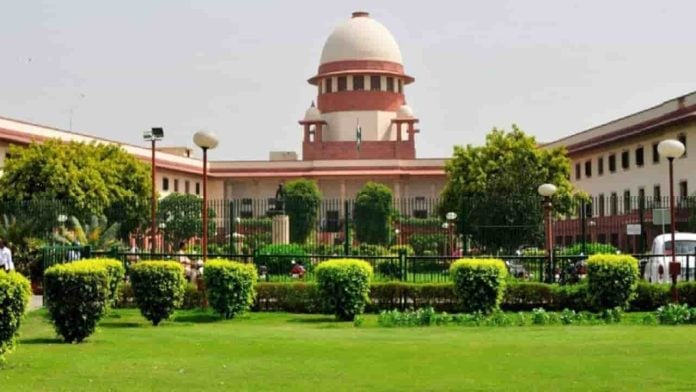The Supreme Court has directed all state governments to comply with directions issued in its February 7, 2023 order regarding disbursal of pension arrears to judicial officers within four weeks.
Amicus Curiae Siddharth Bhatnagar apprised the Apex Court on Tuesday that most of the States have complied with the directions regarding disbursal of pension arrears to judicial officers after enhancement, the Supreme Court has been apprised.
Almost all non-compliant States, including Jharkhand, Karnataka, Maharashtra, Kerala, Manipur, Punjab, Rajasthan, Uttar Pradesh, Telangana, Tamil Nadu, Madhya Pradesh and Uttarakhand have substantially complied with the directions issued by the top court of the country on February 7 this year.
The Apex Court, while noting that some state governments have not complied with its earlier decision regarding enhancement of pension, to the extent they have defaulted in depositing pension arrears due to judicial officers, had, on February 7, directed the respective Chief Secretaries of concerned States to remain present in court if the affidavits were not submitted by February 24.
Accordingly, the Bench recorded appreciation for the Standing Counsel of the concerned States and the State Governments for making the payments.
It was also pointed out that the State of Sikkim did not file any affidavits post the February 7 order, while the NCT of Delhi was yet to comply with the Court’s earlier direction to raise the pension of retired judicial officers.
The Bench of Justice B.R. Gavai, Justice Vikram Nath and Justice Sanjay Karol directed Senior Counsel W.A. Qadri, representing the NCT of Delhi, to file its compliance affidavit after making the payment of arrears within 10 days.
The Counsel appearing for the State of Sikkim submitted that they have filed an affidavit in December itself indicating compliance. He said Sikkim had clarified on the last date of hearing that in the concerned period, only five judicial officers had retired and the same thing has been mentioned in the affidavit.
Sikkim has provided a notification, which said that arrears would be calculated and paid, the Amicus told the Apex Court.
Justice Gavai asked the Counsel for the State whether the arrears have been paid or not, since it was not mentioned in the affidavit. It further said a specific statement was required regarding payment of arrears.
The Counsel responded that they have filed an affidavit saying that they have complied.
Expressing its displeasure after perusal of the affidavit, the Bench asked the Counsel to seek instructions regarding disbursal.
Qadri, representing Delhi, said there was some confusion at the level of Registry of the Delhi High Court and the Principal District Judge (Headquarter) over non-compliance.
He pointed out some confusion at the level of Registry of the Delhi High Court and the Principal District Judge (Headquarters). He referred to several communications to demonstrate that the Government of NCT of Delhi has persistently pursued the cause pertaining to the disbursal of the arrears to the judicial officers.
The Apex Court then took note of the fact that the office of Principal District Judge (Headquarters) was under some erroneous impression.
The Senior Counsel apprised the Supreme Court that confusion has been cleared and the file has been sent to the Union Ministry of Finance. He assured the Bench that actual disbursement would take place within a period of 10 days.
The top court of the country directed the Government of NCT of Delhi to file a compliance affidavit, once the actual disbursement was done.
In 2012, the Supreme Court had directed that existing pension of all past pensioners, who had retired after January 1, 1996, and the pensioners whose pensions were consolidated as per the Karnataka model, shall be raised by 3.07 times on par with other pensioners subject to a minimum of 50 percent of the revised pay scale of their respective posts.
On April 4, 2004, the Supreme Court adopted the model envisaged in the Karnataka Government Order of February 4, 2004 on pension of retired judicial officers.
The Apex Court then directed the States to file their response within a period of two months.
Earlier in May last year, the Supreme Court had given last opportunity to all State Governments to enhance the pension of retired judicial officers as per the scheme elucidated in the order passed by the Apex Court in 2012. The State Governments were directed to comply with the order within four weeks.
(Case title: All India Judges Association And Ors vs Union of India And Ors)


